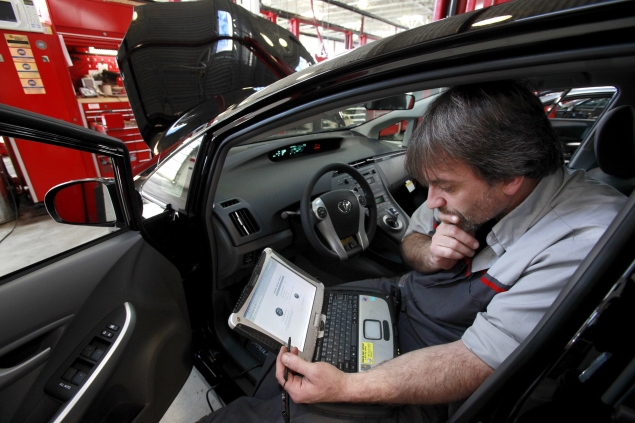- Home
- Others
- Others News
- Soon, emotion detectors in cars to help make safer drivers
Soon, emotion detectors in cars to help make safer drivers

This technology can be useful in the fields of video gaming, medicine, marketing and also in driver safety, where in addition to fatigue, the emotional state of the driver is also a risk factor.
It is not easy to measure emotions within the confines of a car. The solution thus explored by scientists at Swiss Federal Institute of Technology at Lausanne - who specialise in facial detection, monitoring and analysis - was to get drivers' faces do the job.
In collaboration with PSA Peugeot Citroen, the scientists adapted a facial detection device for use in a car using an infrared camera placed behind the steering wheel.
The problem was to get the device to recognise irritation on the face of a driver.
To simplify the task at this stage, researchers Hua Gao and Anil Yuce chose to track only two expressions - anger and disgust.
The system 'learned' to identify the two emotions using a series of photos and videos. The detector worked well and irritation could be accurately detected in the majority of cases.
When the test failed, it was usually because these emotions varied from individual to individual.
"This is where the difficulty would always lie, given the diversity of how we express anger," Gao said.
"Additional research aims to explore updating the system in realtime - to complement the static database - a self-taught human-machine interface or a more advanced facial monitoring algorithm," Gao explained.
Catch the latest from the Consumer Electronics Show on Gadgets 360, at our CES 2026 hub.
Related Stories
- Samsung Galaxy Unpacked 2025
- ChatGPT
- Redmi Note 14 Pro+
- iPhone 16
- Apple Vision Pro
- Oneplus 12
- OnePlus Nord CE 3 Lite 5G
- iPhone 13
- Xiaomi 14 Pro
- Oppo Find N3
- Tecno Spark Go (2023)
- Realme V30
- Best Phones Under 25000
- Samsung Galaxy S24 Series
- Cryptocurrency
- iQoo 12
- Samsung Galaxy S24 Ultra
- Giottus
- Samsung Galaxy Z Flip 5
- Apple 'Scary Fast'
- Housefull 5
- GoPro Hero 12 Black Review
- Invincible Season 2
- JioGlass
- HD Ready TV
- Laptop Under 50000
- Smartwatch Under 10000
- Latest Mobile Phones
- Compare Phones
- iQOO Z11 Turbo
- OPPO A6c
- Samsung Galaxy A07 5G
- Vivo Y500i
- OnePlus Turbo 6V
- OnePlus Turbo 6
- Itel Zeno 20 Max
- OPPO Reno 15 Pro Mini 5G
- Lenovo Yoga Slim 7x (2025)
- Lenovo Yoga Slim 7a
- Realme Pad 3
- OPPO Pad Air 5
- Garmin Quatix 8 Pro
- NoiseFit Pro 6R
- Haier H5E Series
- Acerpure Nitro Z Series 100-inch QLED TV
- Asus ROG Ally
- Nintendo Switch Lite
- Haier 1.6 Ton 5 Star Inverter Split AC (HSU19G-MZAID5BN-INV)
- Haier 1.6 Ton 5 Star Inverter Split AC (HSU19G-MZAIM5BN-INV)

















